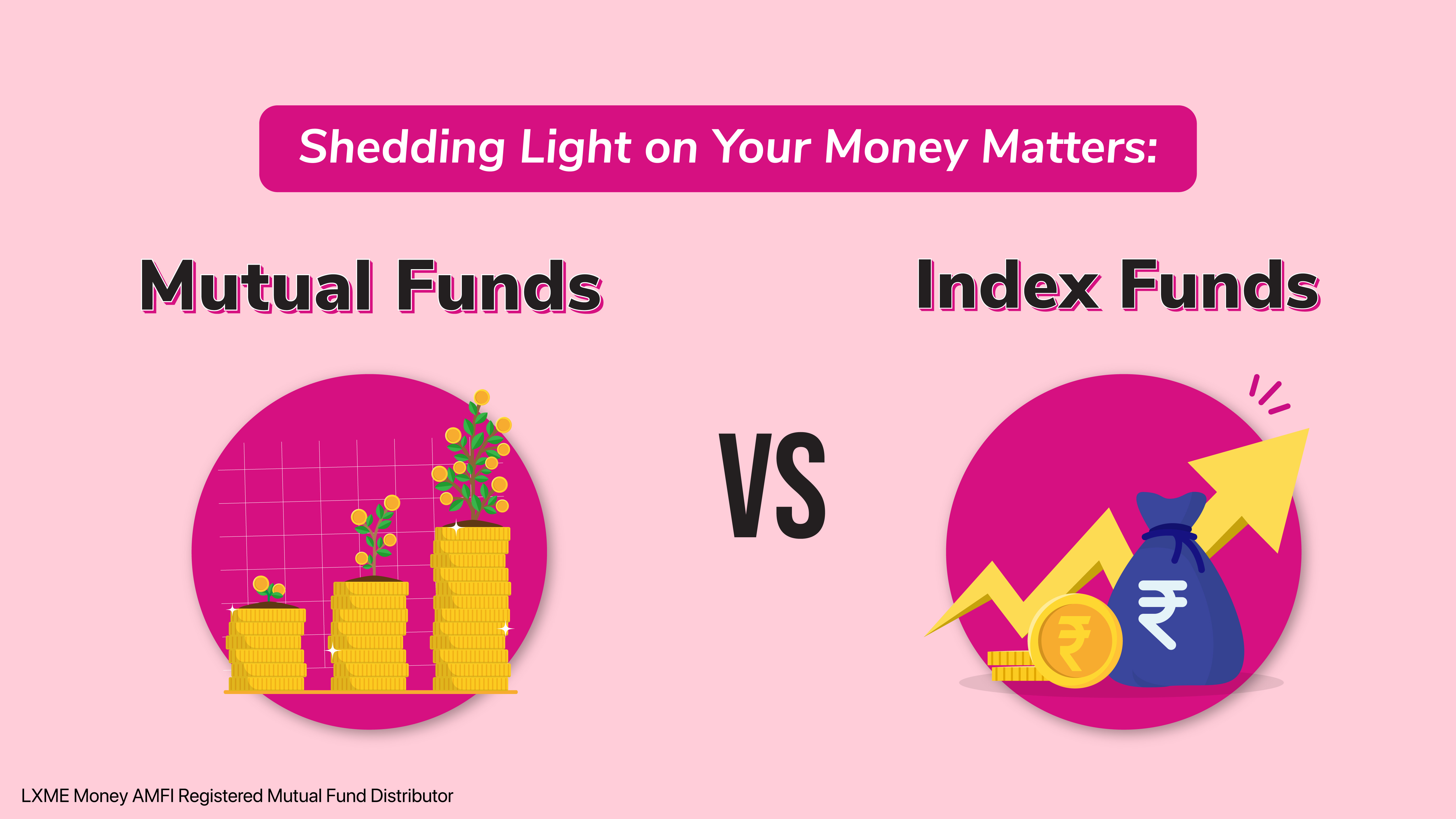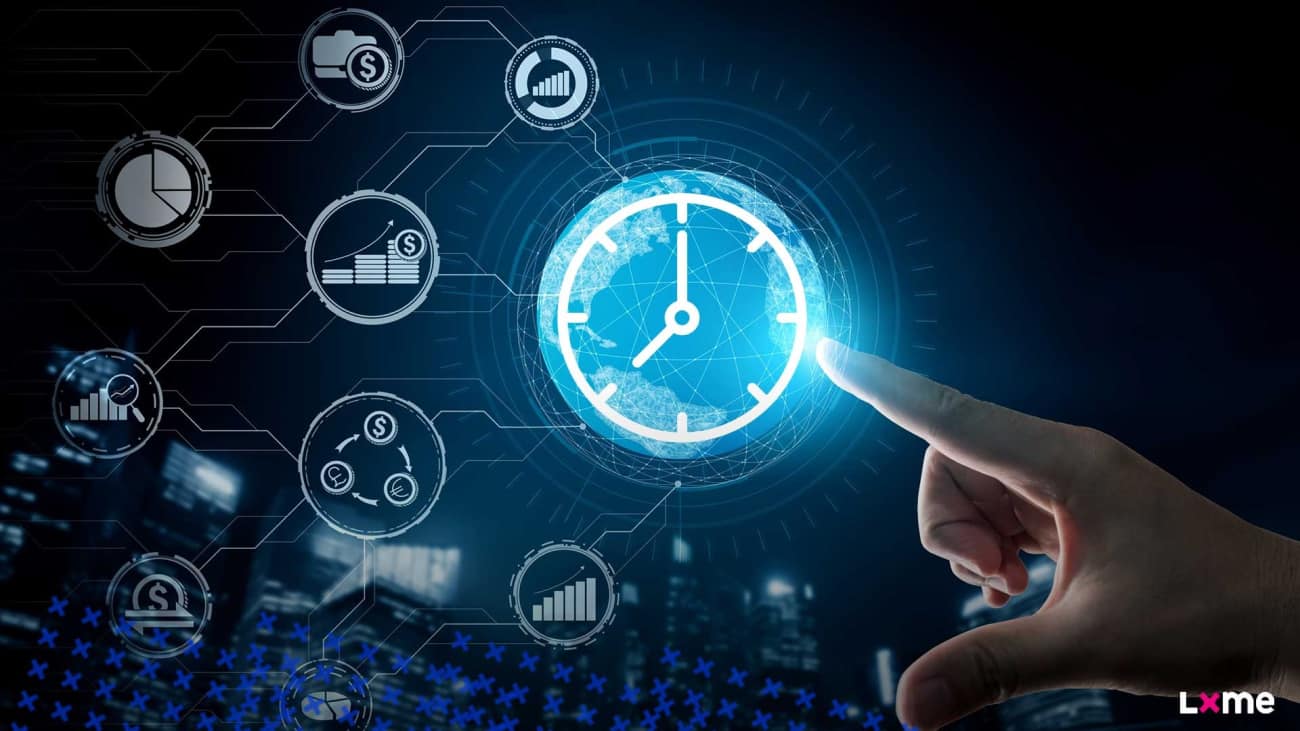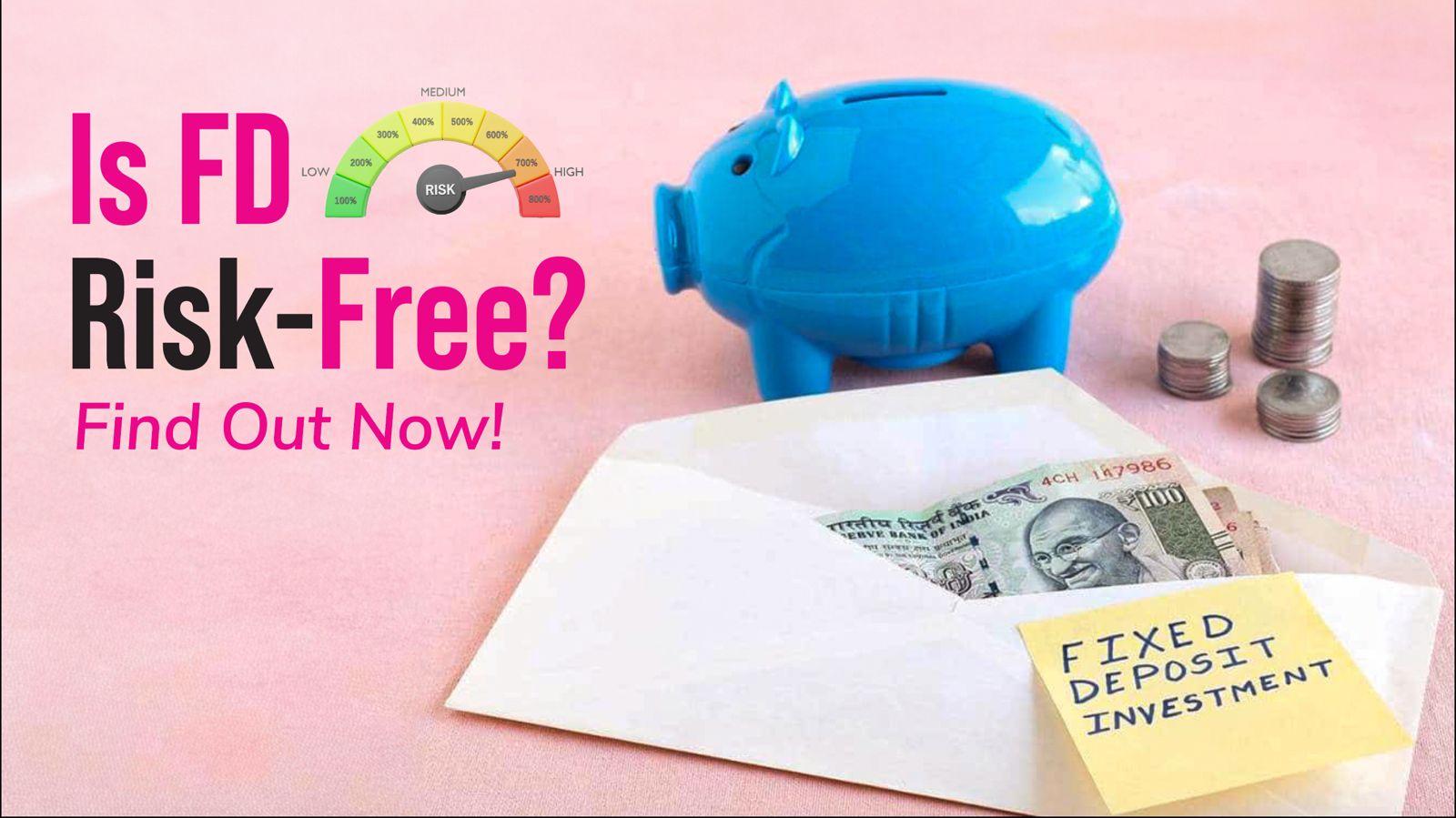Introduction:
When it comes to investing your hard-earned money, one of the options that often comes to mind is Fixed Deposits, commonly referred to as FDs. FDs have been a go-to choice for women for decades, mainly due to their perceived safety. But is FD risk free?
In this blog, we’ll break down the concept of FDs in simple terms and understand the risks associated with FDs.
What is a Fixed Deposit?
A Fixed Deposit is a financial instrument provided by banks and other financial institutions where you deposit a lump sum of money for a predetermined period and earn a fixed rate of interest.
For example – If you invest ₹100,000 in a fixed deposit for 1 year at a 5% annual interest rate, then you will receive ₹5,000 as interest at the end of the year along with ₹1,00,000 that you invested.
Why Do Women Choose FDs?
- Safety of fixed deposits: FDs are often considered safe because they are backed by banks or financial institutions. When you deposit your money in an FD, you essentially lend it to the bank, which promises to pay you back with interest at the end of the tenure.
- Guaranteed returns in fixed deposits: FDs offer guaranteed fixed returns. The interest rate is fixed at the time of investment, so you know exactly how much you’ll earn at the end of the tenure.
Is FD Risk Free?
Now, let’s address the burning question: Are FDs risk-free? The short answer is no: FDs are not entirely risk-free.
While they are considered safer than many other investment options, there are still some risks to be aware of.
- Interest Rate Risk: FD interest rates are fixed at the time of investment. This means that if interest rates in the market rise after you’ve invested in an FD, you’ll miss out on the opportunity to earn higher returns.
- Inflation Risk: Inflation means an increase in the prices of goods and services. If the rate of inflation is higher than the interest rate you’re earning on your FD, you may experience a decrease in the actual value.
For example – If the current inflation rate is 6%p.a and you have invested in a FD that gives 7% p.a, then the real returns earned are just 1%.
- Default Risk: The risk of a bank default is uncommon but exists. In the event of a bank default, deposits, including interest, of up to ₹ 5 lakh per individual per bank account are protected and assured by the DICGC. However, any amount exceeding this Rs 5 lakh limit is at risk of loss in case of a default.
Now, let’s understand what is DICGC and the role it plays:
DICGC stands for Deposit Insurance and Credit Guarantee Corporation, and it plays an important role in safeguarding your deposits. DICGC is a subsidiary of the Reserve Bank of India and provides insurance coverage on deposits in Indian banks.
DICGC insurance covers each depositor’s deposits up to a maximum limit of ₹5 lakhs per bank, including both principal and interest amounts. This means that if a bank holding your FD faces financial difficulties or defaults on payments, you are protected up to ₹5 lakhs through DICGC insurance.
- Liquidity Risk: Withdrawing your money prematurely can result in a penalty and a lower interest rate. So, if you suddenly need access to your funds, you might not get the full benefits of your FD.
For example – If you have a 5 year FD, and you need funds after 2 years, you may face penalties or reduced interest rates, leading to lower returns than expected.
- Taxation Risk: The interest earned on FDs is subject to income tax. Depending on your tax bracket and the prevailing tax laws, you may have to pay a significant portion of your earnings in taxes, reducing your overall returns.
For example – If you are in the 30% tax bracket and invest in a 6% p.a FD, the real return you will get after taxes is 4.2%, and this could be much lower if we consider inflation.
How to Minimize FD Risks?
Diversify Your Investments: Don’t put all your money into one investment option. Instead, consider spreading your money across various asset classes, such as equity, debt, and gold. Diversification can help balance risks and potentially yield higher returns.
Mutual funds provide a great start for women, as it offers the benefit of diversification and also you get the benefit of professional fund management at a very low cost plus and you can start with as low as ₹100. Check out the various goal- based portfolios offered on the LXME app. These are well-researched, diversified and curated by experts.
Conclusion:
In conclusion, although Fixed Deposits are often seen as a secure choice among women, they are not entirely free of risks and will not help you beat inflation. Like any investment, FDs come with their own set of risks. Therefore, it’s important to diversify your money in different instruments to achieve your goals.The key to successful financial planning is finding the right balance between risk and reward.
Share this blog with your family and friends if you find it insightful!!
Download the LXME app for more such content!
1. Is there any risk in a fixed deposit?
Ans. Yes, Like any investment, FDs come with their own set of risks, including interest rate risk, inflation risk, default risk, liquidity risk, and taxation risk.
2. How much coverage does DICGC provide per depositor, per bank?
Ans. DICGC guarantees coverage of up to Rs 5 lakh per depositor, per bank and covers both the principal and interest amount of the deposit.
3. Are FD interest rates the same for all banks?
Ans. No, FD interest rates vary from bank to bank and can also depend on the tenure of the FD. Different banks offer different rates, so it’s a good idea to compare rates before opening an FD to get the best deal.
New Investor? Request a Callback.
Fill in your details and we will guide you at every step
other blogs

Mutual Funds July 1, 2024
Shedding Light on Your Money Matters: Mutual Funds vs Index Funds
Conquering your financial goals takes knowledge and the right tools. At LXME, we empower women to take control of their money with online SIP investments. Today, we’ll delve into the world of mutual funds and index funds, two popular investment options. Understanding the difference between mutual fund and index fund will equip you to make … Shedding Light on Your Money Matters: Mutual Funds vs Index Funds

Mutual Funds
Conquer Your Future: Best SIP Plans for 30 Years and Building Financial Freedom with LXME
At LXME, we empower women to take control of their finances and achieve financial freedom. We understand the unique challenges women face when it comes to money matters, and that’s why we’ve built a safe and supportive investment platform designed exclusively catering to investment for women. But financial freedom doesn’t happen overnight, it requires a … Conquer Your Future: Best SIP Plans for 30 Years and Building Financial Freedom with LXME

Money Hacks Mutual Funds June 27, 2024
Navigating the Best Time to Buy Shares for Long-Term Growth
In the dynamic world of stock markets, strategic timing can be a game-changer for long-term investors. Our comprehensive blog, “Trying to Time Investments? Here Are Some Tips,” available on LXME, offers valuable insights into mastering the art of timing in stock investments. Uncover tips and strategies to identify the opportune moments to buy shares for … Navigating the Best Time to Buy Shares for Long-Term Growth









